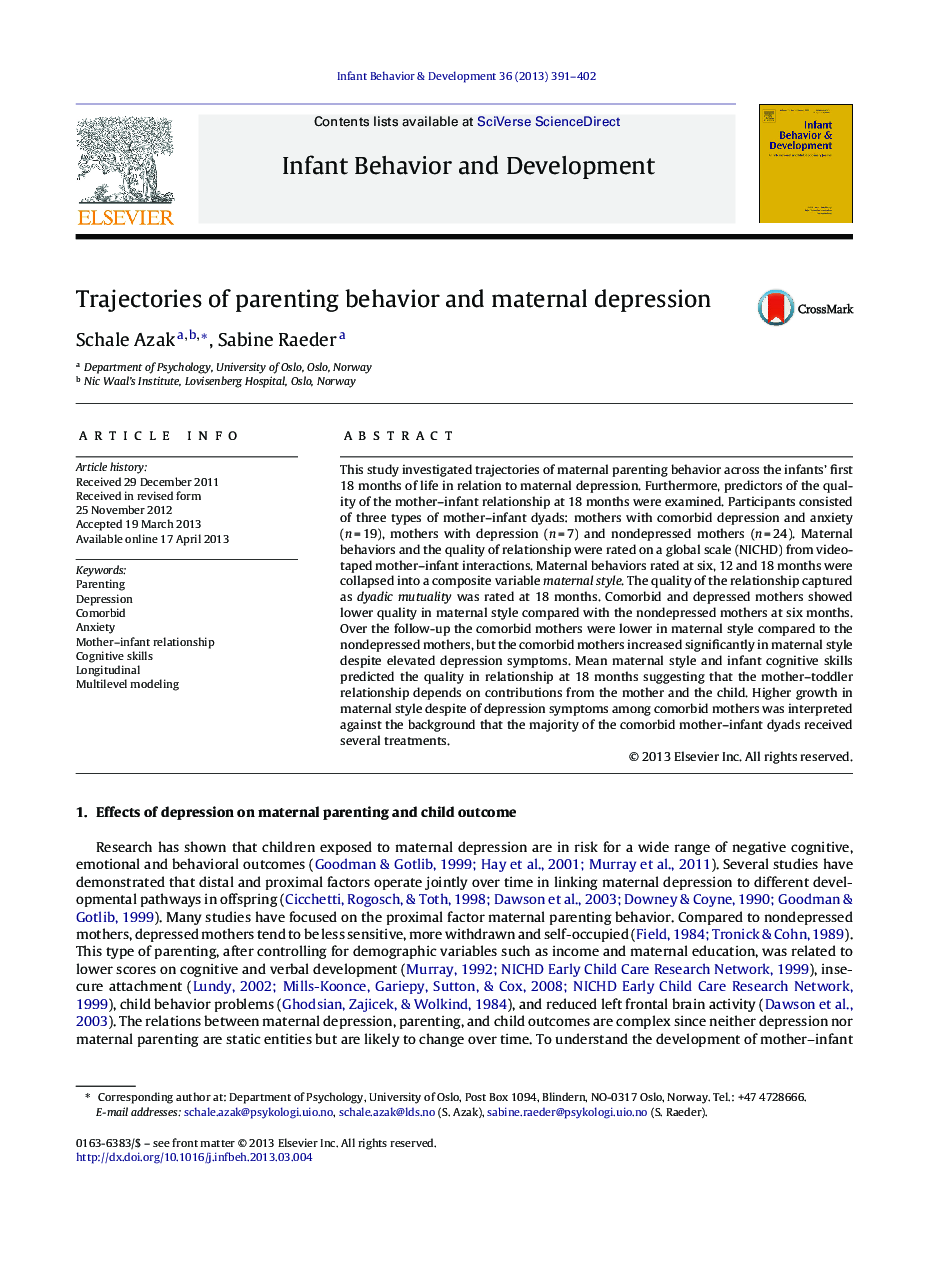| Article ID | Journal | Published Year | Pages | File Type |
|---|---|---|---|---|
| 917247 | Infant Behavior and Development | 2013 | 12 Pages |
•Mother–infant interaction with comorbid, depressed and nondepressed mothers.•Over the follow-up from 6 to 18 months the comorbid mothers lowest in maternal style.•Comorbid mothers increased parenting quality despite elevated depression symptoms.•Mean maternal style and infant cognitive skills predicted dyadic quality.•Mother–toddler relationship depends on contributions from both mother and child.
This study investigated trajectories of maternal parenting behavior across the infants’ first 18 months of life in relation to maternal depression. Furthermore, predictors of the quality of the mother–infant relationship at 18 months were examined. Participants consisted of three types of mother–infant dyads: mothers with comorbid depression and anxiety (n = 19), mothers with depression (n = 7) and nondepressed mothers (n = 24). Maternal behaviors and the quality of relationship were rated on a global scale (NICHD) from video-taped mother–infant interactions. Maternal behaviors rated at six, 12 and 18 months were collapsed into a composite variable maternal style. The quality of the relationship captured as dyadic mutuality was rated at 18 months. Comorbid and depressed mothers showed lower quality in maternal style compared with the nondepressed mothers at six months. Over the follow-up the comorbid mothers were lower in maternal style compared to the nondepressed mothers, but the comorbid mothers increased significantly in maternal style despite elevated depression symptoms. Mean maternal style and infant cognitive skills predicted the quality in relationship at 18 months suggesting that the mother–toddler relationship depends on contributions from the mother and the child. Higher growth in maternal style despite of depression symptoms among comorbid mothers was interpreted against the background that the majority of the comorbid mother–infant dyads received several treatments.
